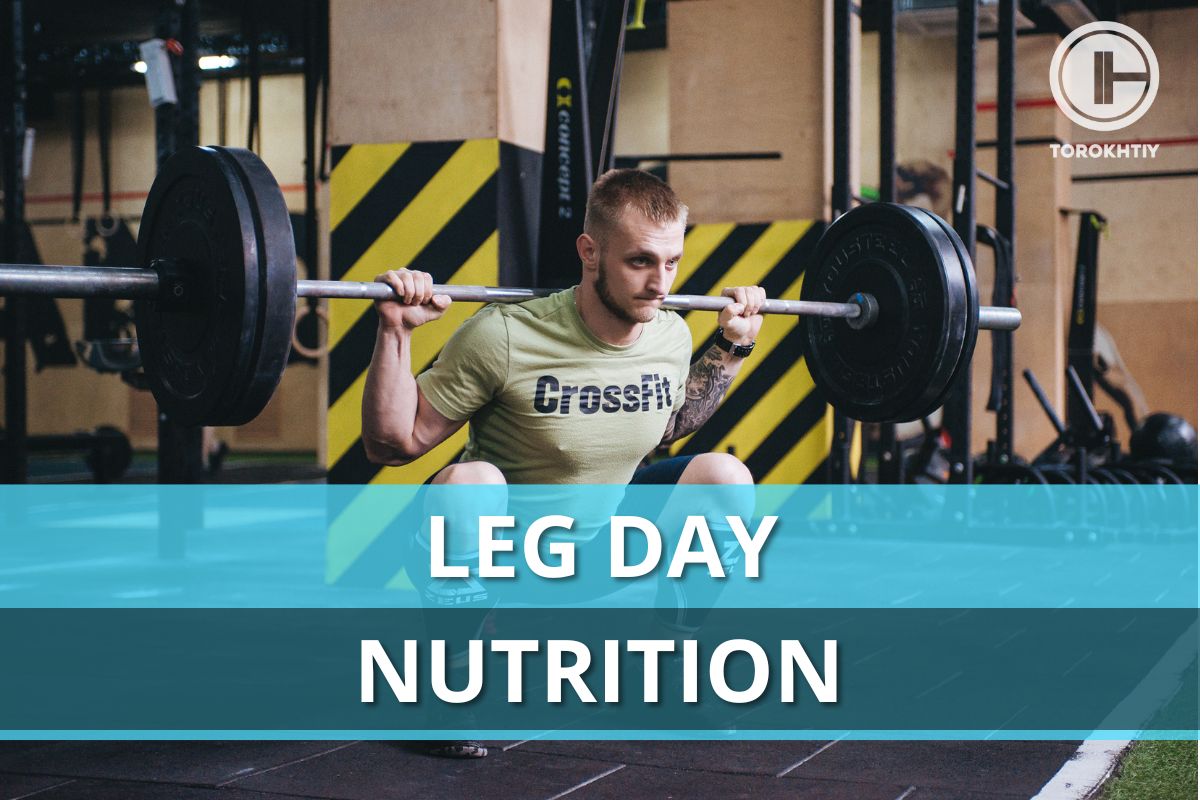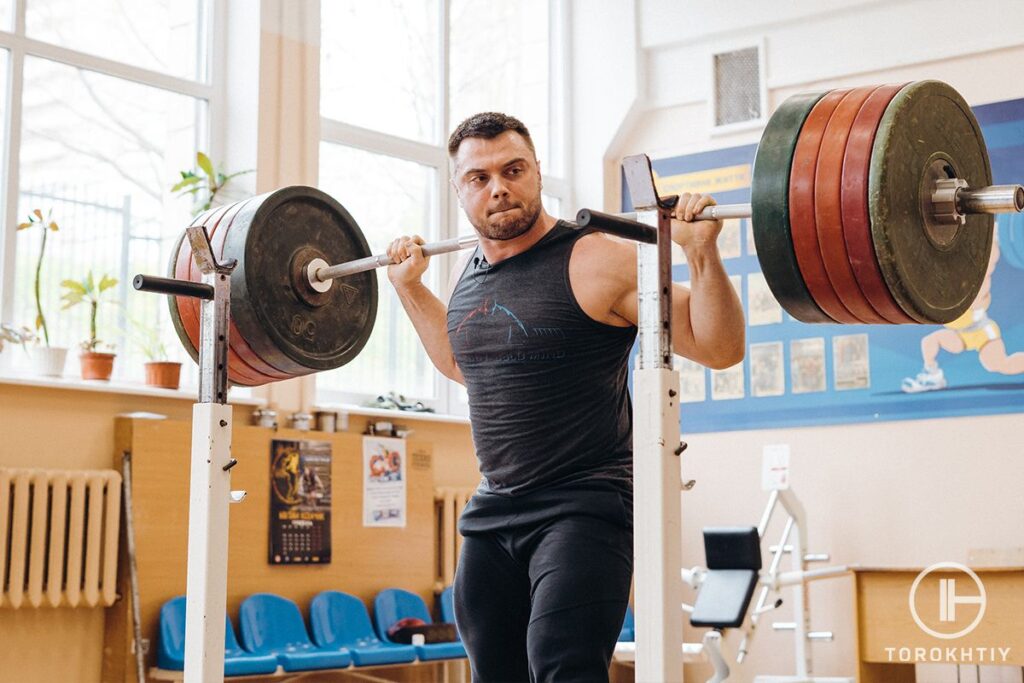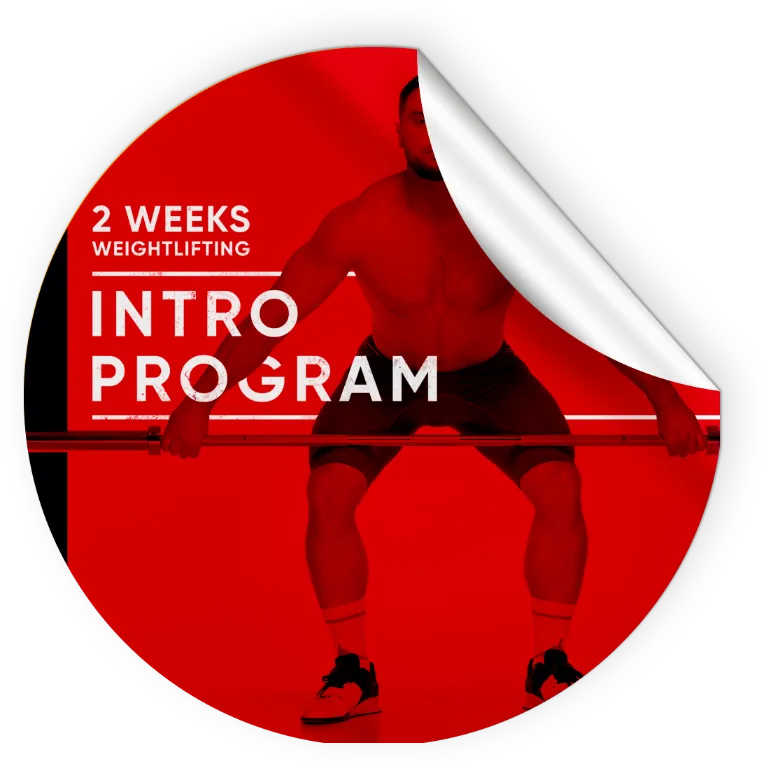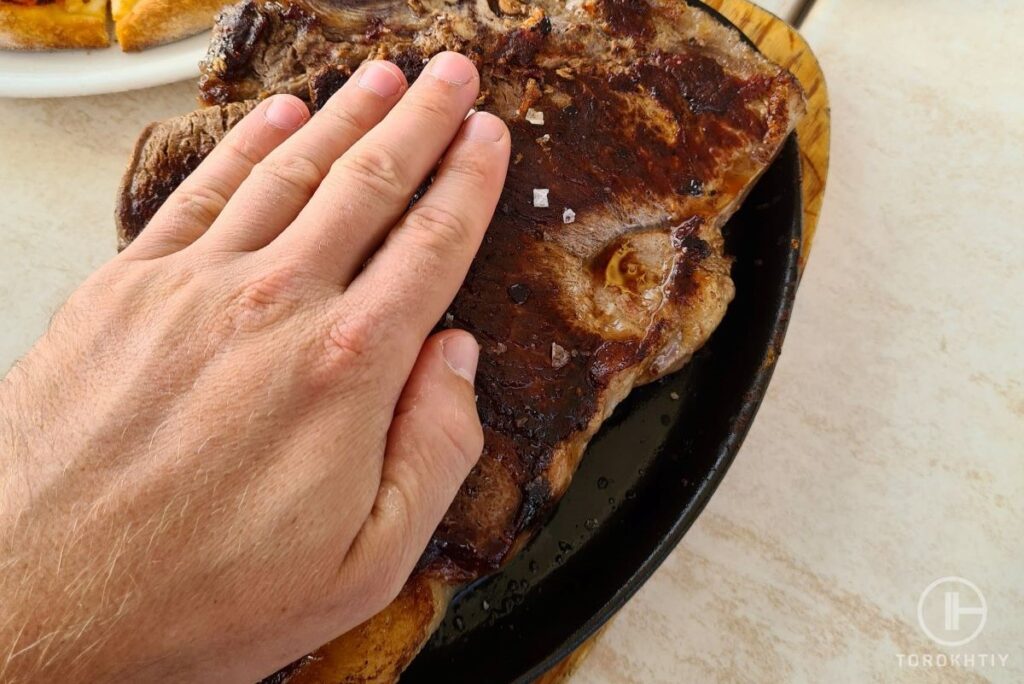Leg Day Nutrition
Author:
Unlock your full potential by engaging with our experts and community! Have questions about your fitness journey or looking for expert advice on weightlifting techniques? Don’t hesitate — leave a comment below and Sergii Putsov will provide a personalized answer and insights to help you reach your goals.
Torokhtiy is reader-supported. Some links are affiliate links, and we may earn a commission at no extra cost to you. See our disclosure page for details.

I managed to stumble a couple of times upon some ridiculous articles describing specific leg day nutrition. Let me shed some light on this case – there are no special secret nutritional plans or food products that can somehow separately affect the growth of our legs, back or arms.
Our physiology is built in such a way that we can’t purposefully produce an impact on leg muscles growth by our nutrition. Let me remind you what exactly we can do to not only provoke the growth of our leg muscles but also all other muscle groups.
Recommendation №1 – strength training on each muscle group
Strength training is a certain thing that will make legs or any other muscle group grow. Do you want big legs? Make heavy squats! Do you want a broad and massive back? Pull-ups and pull exercises are there to aid you! The thing you train gets trained. The first and the only thing that can purposefully influence a specific muscle group is strength stimulus.
Remember to progress in your loads. Gradually increase the working weight on the barbell/exercise machine. Your muscles will grow along with your strength, there is no other way it works.
You may like it:

Recommendation №2 – a slight calorie surplus
Our body needs a calorie surplus to build up muscle tissue. Let’s not take into consideration novices, obese people and athletes that had long-term breaks in their training routine. As in their case strength may grow without a calorie surplus for some period.
If we want muscle and strength growth optimization regardless of the other factors we need a calorie surplus. The less workout experience you have the more calorie surplus you may use, about +15-20% of calories you need to maintain your weight. If your maintenance calories intake is 2700 a day then the recommended surplus is about 400-540 kcal.
If you’ve been training for several years and managed to grow a solid muscle mass, you need a rather modest surplus of about +5-10% of your maintenance calories. With 2700 maintenance calories it’s about 130-270 kcal. Expect more intensive fat growth if you cross this limit.
By the way, you can plan your menu to have a calorie surplus on workout days and stay within maintenance calories during the rest days. Doing so will minimize fat gains. However, this is more of an advice than a guideline to follow. Your personal preferences as well as the simplicity of your nutrition plan – that’s what really matters.
Follow us!

Free!
Get a 2-week Weightlifting Program as a bonus for the subscription to kickstart your training plan!

Free!
Recommendation №3 – enough protein and carbohydrates
If there is less than 1,6g of protein per 1kg of your body mass, I strongly advise you to increase protein consumption to this level. If you are a male then you can consume even more. Weight training will produce a stimulus for strength and you need a sufficient amount of protein to optimize this process under the calorie surplus condition.
Carbohydrates are also of the utmost importance as they help you to create this surplus and keep your training performance. But unlike protein, carbohydrates require an individual approach. Orient yourself at 3-5g of carbohydrates per 1kg of your body mass. If you consume enough proteins but there is no increment in strength and muscle mass I advise increasing your calorie intake by the means of carbohydrates.

Recommendation №4 – planning your meal intakes
Meal timing is another thing that matters. I recommend consuming at least half of your carbohydrates within the proximity of your workout session – I mean before and straight after. This will refill your glycogen depot and improve your working capacity and results.
To have 2 full-fledged meal intakes with a good amount of carbohydrates prior to the workout is even better. This will only boost the replenishment of glycogen storages.
Here is an example of how to allocate a total of 400g of carbohydrates on a workout day. 90g of carbohydrates for breakfast, 110g of carbohydrates before the workout, 120g of carbohydrates after the workout session. The remaining 80g of carbohydrates should go with one or two snacks.
Recommendation №5 – hydration before the workout
When you’re on your way to weight training the color of your urine must be bright-yellow or transparent. It guarantees you that you won’t start your workout being dehydrated, which can severely impact your physical capacity and total wellbeing.
I recommend setting up a rule to drink not less than three 300-400ml portions of water before the workout to establish a good hydration process. This is especially relevant to ones who have morning workouts. It’s better to drink more than you want than start exercising with dehydration after the nighttime. There is no special nutrition for your legs, I shall remind it to you one more time. It doesn’t matter which muscle group you train today or tomorrow as the basics of training and nutrition programs don’t change because of this. Consistency in following these recommendations is a key thing to do. We suggest that you make use of our updated programs to make your workout planning process much easier and reach a whole new level.
RELATED ARTICLES:
You might be interested in:
Why Trust Us?
With over 20 years in Olympic weightlifting, strength training, nutrition coaching, and general fitness our team does its best to provide the audience with ultimate support and meet the needs and requirements of advanced athletes and professional lifters, as well as people who strive to open new opportunities and develop their physical capabilities with us.
By trusting the recommendations of our certified experts in coaching, nutrition, and sports training programming, as well as scientific consultants, and physiotherapists, we provide you with thorough, well-considered, and scientifically proven content. All the information given in the articles concerning workout programming, separate exercises, and athletic performance, in general, is based on verified data.
The product testing process is described in more detail here.
Author: Sergii Putsov
Head of Sport Science, PhD
Best Results: Snatch – 165 kg,
C&J – 200 kg
Sergii Putsov, Ph.D., is a former professional weightlifter and National team member, achieving multiple medals in the 94 kg weight category at national competitions. With a Master’s degree in “Olympic & Professional Sport Training” and a Sport Science Ph.D. from the International Olympic Academy, Greece, Sergii now leads as the Head of Sport Science. He specializes in designing training programs, writing insightful blog articles, providing live commentary at international weightlifting events, and conducting educational seminars worldwide alongside Olympic weightlifting expert Oleksiy Torokhtiy.




Still have questions after reading our article? Unlock your full potential by engaging with our experts and community! Don’t hesitate — leave a comment below and Sergii Putsov will provide a personalized answer and insights to help you reach your goals.